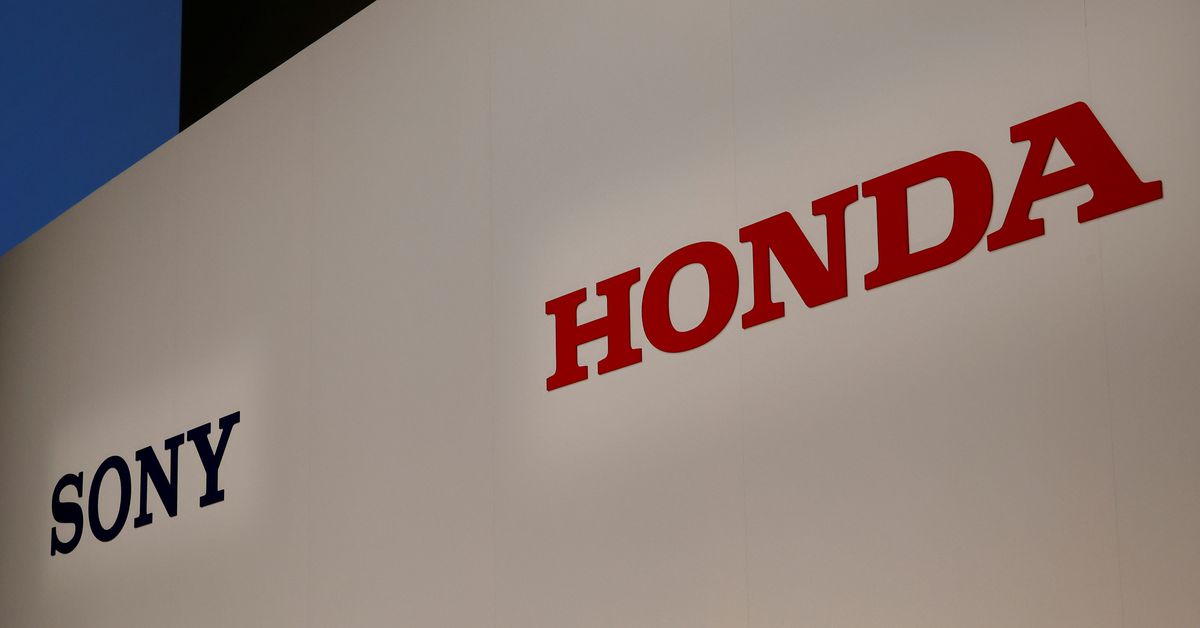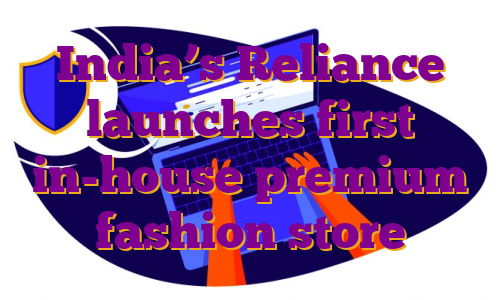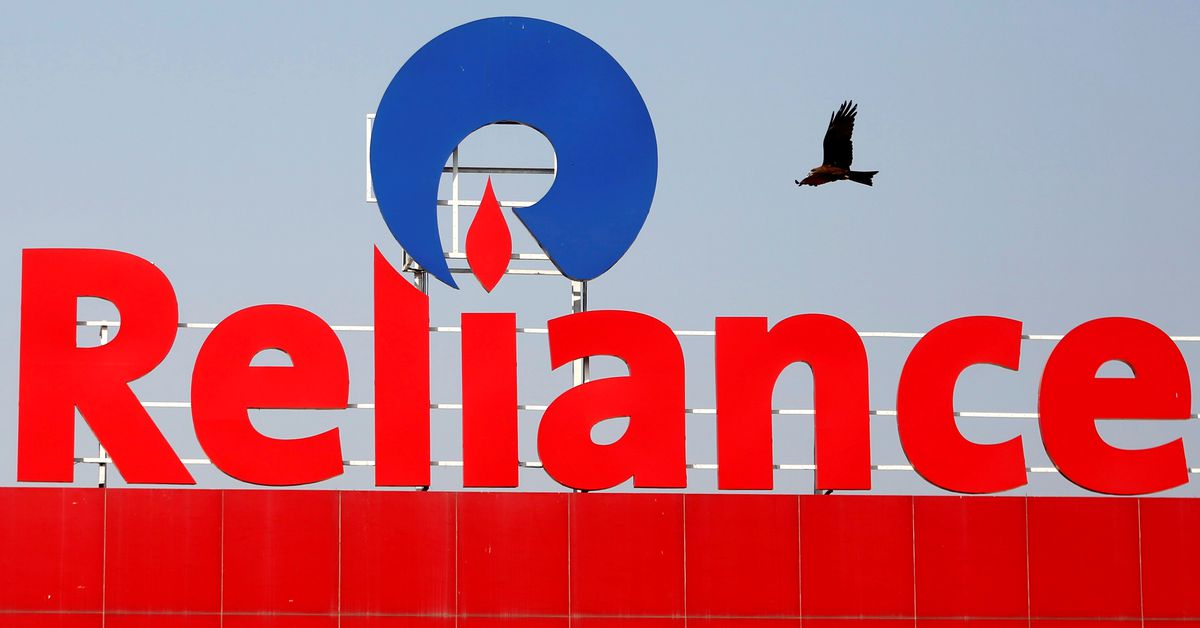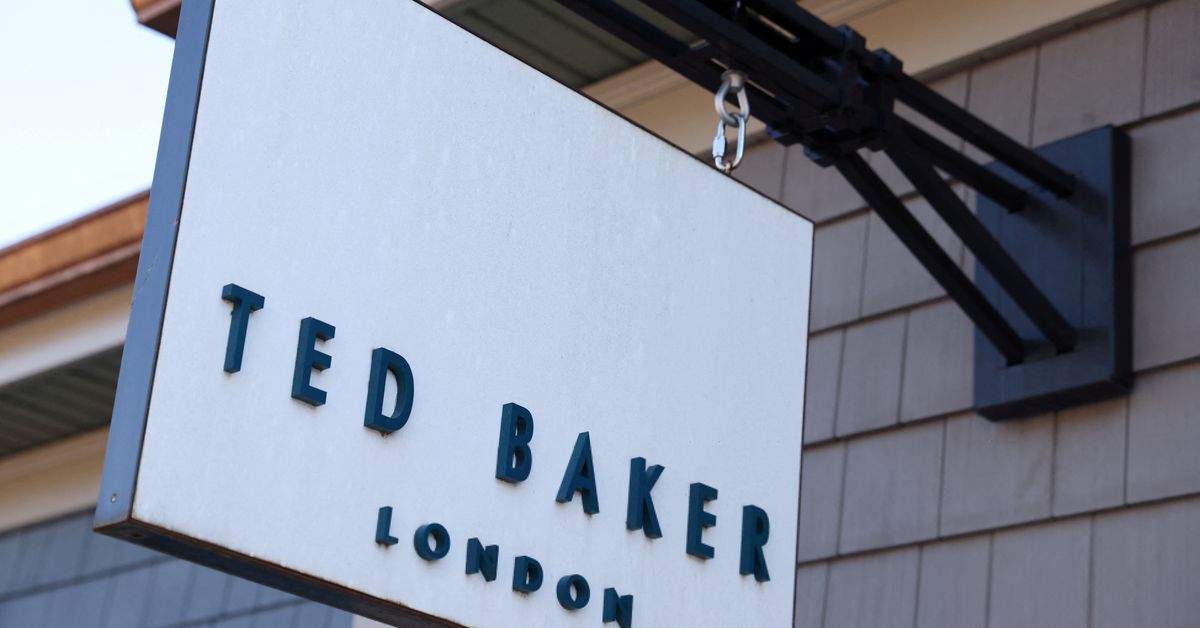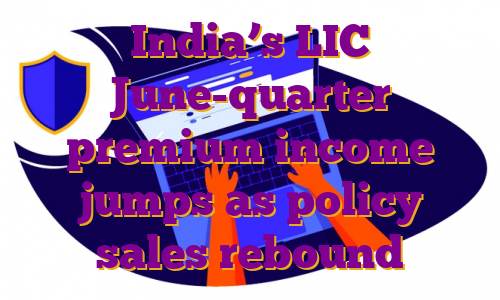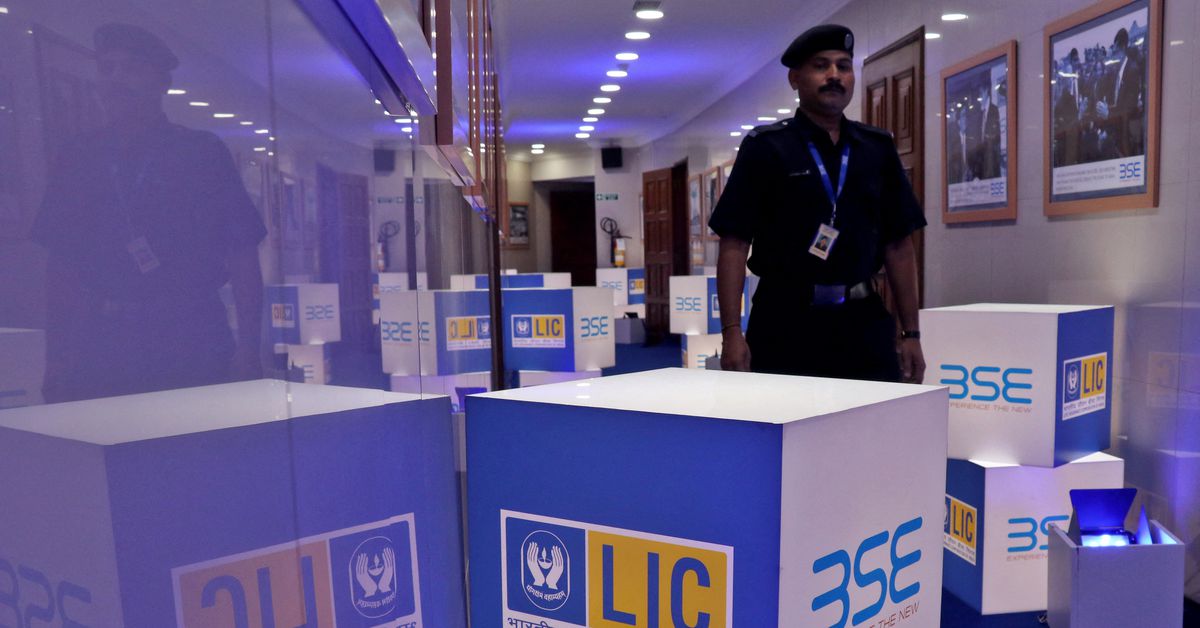TOKYO, Oct 13 (Reuters) – A joint venture set up by Japan’s Sony Group Corp (6758.T) and Honda Motor (7267.T) is aiming to deliver its first electric vehicles by 2026 and will sell them online, starting in the United States and Japan.The new EV will also be priced at a premium, offering a new software system developed by Sony that would open the way to recurring revenue from entertainment and other services that would be billed monthly, the companies said.The update from the joint venture, Sony Honda Mobility, is the first since the two companies launched the project in June.Register now for FREE unlimited access to Reuters.comKey details, including pricing, battery range and even the platform for the new vehicle have not been determined, but representatives of the new company detailed a vision for a vehicle that would function almost like a rolling smartphone.Sony will provide the software system for the new car, from the onboard controllers to cloud-based services that will connect with entertainment and payment systems.It will also provide sensors and other technology for a Level 3 autonomous drive system that will allow for drivers to pay more attention to the content and software services that will be offered.In Level 3 systems, also known as limited self-driving automation, drivers can ride without watching the road or handling the wheel on highway driving but need to be ready to take back control.Tesla (TSLA.O), General Motors(GM.N), Ford Motor Co (F.N) and Mercedes Benz(MBGn.DE) all offer some form of hands-free driving assist systems.“As safe driving technology will continue to evolve and the amount of concentration required to drive will be reduced, we should consider new ways to enjoy and spend time in the cabin space as a whole,” said Izumi Kawanishi, the joint venture’s president and executive at Sony.Honda will decide on the platform that the new vehicle will use and details like the battery supplier. The still-to-be named EV will likely be manufactured by Honda at one of its plants in Ohio.Honda, like its bigger rival Toyota Motor (7203.T), has been slow to shift its fleet to electric. It has also struggled over the years to make gains in the luxury vehicle market with its Acura brand.Yasuhide Mizuno, the joint venture’s chairman and chief executive, and a senior Honda executive, said the project was important for Honda to develop a “longer-term relationship” with its car buyers as the vehicle shifts to become more of a connected device.Mizuno said Honda believed that 2025 would be a crucial year in the shift toward EVs in the U.S. market and that the joint-venture believed it had to hit that opening even though it means a compressed development cycle for the new EV.The new EV will be delivered to the Japanese market in the second half of 2026. The two companies are considering a launch for Europe, but no plan has been set. Orders for the new EV should open in 2025, the companies said.($1 = 146.8300 yen)Register now for FREE unlimited access to Reuters.comReporting by Satoshi Sugiyama; Editing by Ana Nicolaci da CostaOur Standards: The Thomson Reuters Trust Principles. .
India’s Reliance launches first in-house premium fashion store
BENGALURU, Sept 29 (Reuters) – Reliance Industries Ltd’s (RELI.NS) retail unit launched its first in-house premium fashion and lifestyle store on Thursday, as the billionaire Mukesh Ambani-led company continues to grab a bigger slice of India’s luxury market.The new store chain called Azorte, the first of which was launched in Bengaluru, will compete with the likes of Mango and Industria de Diseno Textil SA-owned Zara (ITX.MC), and cater to millenials and Gen Z.”The mid-premium fashion segment is one of fastest growing consumer segments as millennials and the Gen Z are increasingly demanding the latest of international and contemporary Indian fashion,” Akhilesh Prasad, chief executive of the fashion and lifestyle arm of Reliance Retail, said.Register now for FREE unlimited access to Reuters.comThe launch is a part of the Ambani company’s aggressive strides in the retail industry, forging partnerships with domestic and global brands. read more The company plans to build a portfolio of 50 to 60 grocery, household and personal care brands within the year and is in advanced talks to get the rights for LVMH-owned French beauty brand Sephora in India.Reliance’s luxury and lifestyle foray has been led by Ambani’s daughter Isha.Register now for FREE unlimited access to Reuters.comReporting by Nandan Mandayam and Nivedita Bhattacharjee in BengaluruOur Standards: The Thomson Reuters Trust Principles. .
Juicy Couture owner scoops up UK’s Ted Baker for about $254 mln
The Ted Baker logo is seen at their store at the Woodbury Common Premium Outlets in Central Valley, New York, U.S., February 15, 2022. REUTERS/Andrew Kelly/File PhotoRegister now for FREE unlimited access to Reuters.com
- Offer price of 110 pence per Ted Baker share
- Offer backed by Ted Baker board
Aug 16 (Reuters) – Juicy Couture and Forever 21 owner Authentic Brands (ABG) (AUTH.N) has agreed to buy Ted Baker (TED.L) in a deal worth roughly 211 million pounds ($254 million), ending months of speculation over the fate of the British fashion group.Pandemic-related losses forced Ted Baker to put itself up for sale in April and the company picked a preferred suitor the following month. However, the bidder – reported to have been ABG – in June decided not to make an offer, forcing Ted Baker to consider other options. read more Ted Baker has now reached an agreement with U.S.-based ABG, whose brands also include Reebok, consisting of 110 pence cash for each Ted Baker share, and which represents a premium of about 18.2% to Monday’s closing price.Register now for FREE unlimited access to Reuters.comThe companies said the deal would not be revised unless a rival suitor emerges.”ABG believes there are significant growth opportunities for the Ted Baker brand in North America given (its) … strong consumer recognition in this market,” the New York-listed company said in a statement on Tuesday.Known for its suits, shirts and dresses with quirky details, Ted Baker is in the midst of a turnaround plan and is looking to benefit from a rebound in demand for office and leisure wear.In May it posted a smaller annual loss of 38.4 million pounds and said sales in the first quarter of the current year had risen 20% year-on-year. read more Ted Baker had also rejected several bids from private-equity group Sycamore before launching its sale process, and Tuesday’s move is the latest in a flurry of deals for British companies, made more affordable to overseas buyers by the weakness of the pound.Ted Baker’s shares were up about 17% at 108p in early trading, just shy of the offer price and still well short of their peak in 2015 when they were trading at 2,972p apiece.($1 = 0.8299 pounds)Register now for FREE unlimited access to Reuters.comReporting by Pushkala Aripaka in Bengaluru; Editing by Sherry Jacob-Phillips and David HolmesOur Standards: The Thomson Reuters Trust Principles. .
India’s LIC June-quarter premium income jumps as policy sales rebound
A security guard walks past logos of Life Insurance Corporation of India (LIC) and Bombay Stock Exchange (BSE) inside the BSE building in Mumbai, India, May 17, 2022. REUTERS/Niharika KulkarniRegister now for FREE unlimited access to Reuters.comBENGALURU, Aug 12 (Reuters) – Life Insurance Corporation of India (LIC) (LIFI.NS) reported a 20.4% rise in June-quarter premium income on Friday, as easing COVID-19 restrictions boosted sales of policies for the insurer that largely depends on its agents.The company, which drives its business mostly through an army of 1.3 million sales agents, was hit by pandemic-led lockdowns last year that disrupted the work of its agents who focus on in-person engagement.”As the COVID situation normalises, we are seeing a larger activity on the ground, therefore bringing us back closer to our model of having ‘feet on street’,” Chairperson M R Kumar said.Register now for FREE unlimited access to Reuters.comLIC, India’s biggest insurer, said net premium income rose to 983.52 billion rupees ($12.34 billion) from 817.21 billion rupees a year earlier, with nearly a 60% jump in the number of policies sold.The company’s gross value of new business (VNB), which measures expected profit from new premiums and is a key gauge for future growth, stood at 18.61 billion rupees, while VNB margins came in at 13.6%.We don’t see much market volatility going forward that could impact results, Kumar said in a press briefing, adding that the insurer sees VNB margin at over 15% by the end of the year.The company, synonymous with buying protection policies in India, listed in May following a record $2.7 billion initial public offering. It commands a market share of over 60% in terms of overall premiums.LIC’s profit for the three months ended June 30 stood at 6.83 billion rupees, compared with 29.4 million rupees in the COVID-hit quarter a year ago, the company said in a regulatory filing.Shares of LIC have fallen about 22% since its May listing, compared to a 23% rise in no. 2 rival SBI Life Insurance (SBIL.NS) over the same period.($1 = 79.6830 Indian rupees)Register now for FREE unlimited access to Reuters.comReporting by Chris Thomas in Bengaluru and Nupur Anand in Mumbai; Editing by Shinjini GanguliOur Standards: The Thomson Reuters Trust Principles. .
AppLovin offers to buy video game software maker Unity in $17.5 bln deal
People play “Pokemon GO” on the Pokequan GoBoat Adventure Cruise in the Occoquan River in the small town of Occoquan, Virginia, U.S. August 14, 2016. REUTERS/Sait Serkan GurbuzRegister now for FREE unlimited access to Reuters.comAug 9 (Reuters) – Gaming software company AppLovin Corp (APP.O) made an offer on Tuesday to buy its peer Unity Software Inc (U.N) in a $17.54 billion all-stock deal, threatening to derail Unity’s announced plan to acquire AppLovin’s smaller competitor ironSource .AppLovin has offered $58.85 for each Unity share, which represents a premium of 18% to Unity’s Monday closing price. Unity will own 55% of the combined company’s outstanding shares, representing about 49% of the voting rights.AppLovin hired advisors to work out an offer after Unity last month said it would buy ironSource in a $4.4 billion all-stock transaction, sources familiar with the matter told Reuters. Unity’s board will have to terminate the ironSource deal if it wants to pursue a combination with AppLovin, according to the proposal.Register now for FREE unlimited access to Reuters.comUnder the proposed deal, Unity’s Chief Executive John Riccitiello will become CEO of the combined business, while AppLovin Chief Executive Adam Foroughi will take the role of chief operating officer.Unity said its board would evaluate the offer. The company is slated to report its earnings after the bell on Tuesday.Both companies make software used to design video games. Game-making software has also been expanding to new technologies such as the so-called metaverse, or immersive virtual worlds.Unity’s software has been used to build some of the most-played games such as “Call of Duty: Mobile,” and “Pokemon Go”, while AppLovin provides helps developers to grow and monetize their apps.AppLovin’s offer comes as game developers and console makers warn of a slowdown in the sector as decades-high inflation and easing of COVID-19 restrictions lead gamers to pick outdoor activities. The company lowered its sales guidance on Tuesday.”The deal comes as surprise to everybody in the business,” said Serkan Toto, founder of game industry consultancy Kantan Games. “It’s a $15 billion company going after a $15 billion company. It’s a desperate attempt to consolidate and the chances of this deal happening are very slim.”Shares of Palo Alto, California-based AppLovin, which went public last year, fell 9.9% while those of Unity rose 1% in the morning trading session. Shares of ironSource were down 9.7%.Foroughi said the combined company will have the potential to generate an adjusted operating profit of over $3 billion by the end of 2024.Register now for FREE unlimited access to Reuters.comReporting by Eva Mathews and Nivedita Balu in Bengaluru, Krystal Hu in New York; Editing by Saumyadeb Chakrabarty and Mike HarrisonOur Standards: The Thomson Reuters Trust Principles. .


